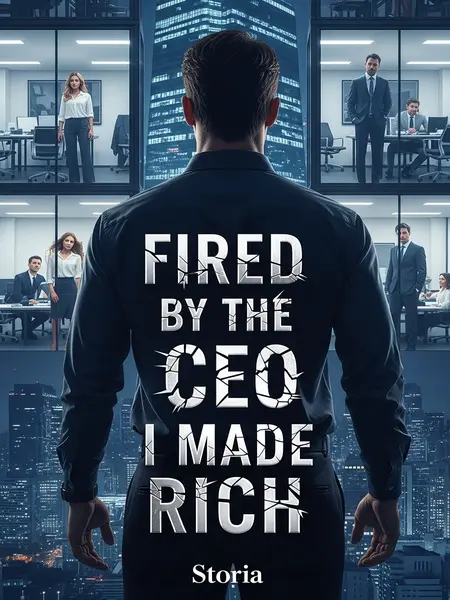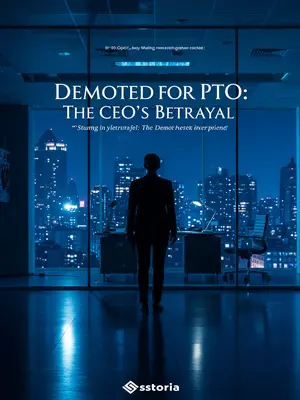Chapter 5: Down and Out
Grant Chandler lazily glanced at me, then opened a game on his computer.
I could hear the faint blips and beeps of his Solitaire game as I stood there, still clutching my folder of achievements like a life raft.
“Anything else? If not, go back and think it over. Whether you stay or leave, I respect your choice.”
He paused and emphasized, “But one thing: the salary won’t change. The company won’t fire you. If you resign, you get no compensation.”
“And let me remind you, we signed a non-compete agreement. After you leave, you can’t work in this industry for at least two years.”
My stomach dropped. Two years out of the game in this industry might as well be a lifetime.
I stared at him, unable to accept the ugliness of his face for a moment.
In anger, I slammed the door and left.
The echo rang down the polished hallway. I caught a few curious glances from the cubicles, but nobody dared say a word.
When I returned to the office, I saw copywriter Emily and an operations team member moving my work computer.
Important files were scattered all over the floor.
A sense of violation swept over me, as if someone had ransacked my apartment. My pulse quickened.
“What the hell’s going on here?” I stepped forward, my voice sharp.
My stomach dropped as I watched Emily unplug my monitor, her hands careful but her eyes never meeting mine.
They stopped and greeted me awkwardly.
Emily smiled, “Manager Derek, I need a high-spec computer for design, and Mr. Chandler asked me to move yours. He said you just do regular office work and don’t need such a high-spec machine.”
“I’ll have someone bring you another computer later, and I’ll share the files with you over the local network.”
With that, she ordered the team member to carry my computer away.
Emily had been hired as a copywriter two months ago under the marketing operations department. She was the wife of Grant Chandler’s college classmate. Rumor was, during her messy divorce, things got dark. Grant played the late-night hero, always there with a shoulder and advice. Later, after her divorce, Grant Chandler sympathized with her for raising a daughter alone and hired her at a high salary as a copywriter.
Emily had a master’s in English from Northwestern—a top-tier university—and had worked for a major company before giving birth. I thought she’d be more than capable for the job.
But her writing was a mess, mostly emotional outpourings, rarely product-focused. When she did write about the product, she used extreme wording that often skirted the red line of advertising regulations.
Every time this kind of copy was published, we risked fines.
I specifically raised the issue in a meeting and gave her a copy of the “Federal Trade Commission Advertising Guidelines” to study.
It was purely a work matter—at most, my tone was stern. Yet she ran out of the meeting room crying, telling Grant Chandler I was targeting her and threatening to quit.
I was speechless—who knew someone could be so fragile in the workplace?
It was after this incident that Grant Chandler began to target me at every turn.
I pressed my throbbing temples in anger.
Several subordinates from the operations department peeked into my office, likely eager for drama.
Finally, Marcus, who’d worked with me for five years, came in.
He asked, worried, “Derek, everyone knows what’s going on. What are you going to do?”
I forced a calm expression. “What can I do? The arm can’t wrestle the leg. But I want to see how far Grant Chandler can go.”
Grant Chandler thinks the market is wide open now, and that as long as someone follows my previous operations plan, everything will be fine.
But he underestimates my role in operations.
After seven years of effort, I may not be the company’s aorta, but I’m at least a major artery near the heart.
Sometimes in life, you can be the unsung hero and still get shown the door.













